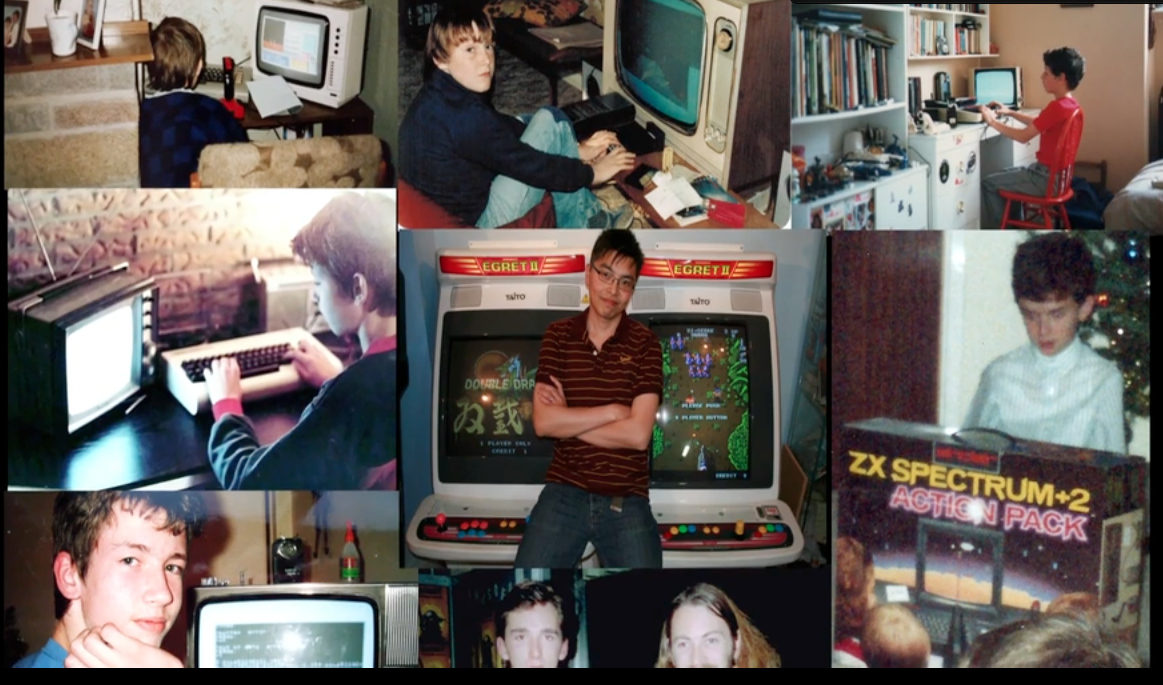There has never been a detailed look at the UK gaming scene in the late 70's and 80's... until now that is! Anthony and Nicola Caulfield sought to gain funding through the major UK TV channels to rectify this but after being declined they went through the process of crowdfunding and smashed through their target on Indiegogo and Kickstarter. This was all a couple of years ago and since then I have been looking forward to this documentary as most of the gaming films are American and Japan-centric. In Britain we didn't have a gaming crash in 1983, in fact there was never a more vibrant time and I'm glad that this period has now been covered in the wonderful 'From Bedrooms to Billions'
In the words of creators Anthony and Nicola Caulfield;
'From Bedrooms to Billions' tells the story of how the creativity and vision of a relatively small number of individuals allowed the UK to play a key, pioneering role in the shaping of the billion dollar video games industry, which today dominates the modern world’s entertainment landscape.
Developments in computer technology in the UK of the late 70’s early 80’s helped inspire a generation of small team enthusiasts, hobbyists, school kids, bedroom coders and entrepreneurs to make and release some truly classic games. From Bedrooms to Billions reveals some of the remarkable stories, struggles and successes that saw the UK video games industry go from quite literally nothing into a major force littered with original thinkers, innovators and eccentric characters.
At 2 and a half hours this documentary is long but still whips along at a brisk pace so time flies by. There is no narration or voiceover but rather the interviews weave the story, being expertly edited and cut to create a flow and narrative. The film starts with the early days of the UK games industry, talking about the home coders who started selling their games through adverts placed in the back of magazines. It then moves on to discuss the various Micro Meets where groups would come together to share their work and ideas.
The second part of the film talks about gaming gaining traction and the rise of distributors like US Gold and Ocean. The interviews are insightful and honest and thoroughly engaging, of particular note is the interview with Matthew Smith, creator of Jet Set Willy and Manic Miner. He was burnt out and thoroughly depressed after producing two hits at such a young age, he didn't know how to handle the fame and expectations placed on him and candidly recalls the 80's being a terrible time for him. As a gamer with much nostalgia for the 80's this section of the documentary was very interesting as it explained the introduction of the middle men and emerging business orientated approach of the industry. This professionalisation led to bigger teams and higher budgets, including the introduction of film license tie-ins and rising advertising budgets. There was a reduction in lone programmers and for many interviewed was a sign of things changing for the worst.
The final part of the film talks about the rise of the 16-bit era and the end of the micro computers. With the rise in quality and the demands on cost and skills many lone programmers either left the business altogether or went to join the big teams in America or Canada. However rather than end on a sad note there is a denouement with the rise of mobile gaming and the indie scene. Ian Livingstone, creator of 'The Next Gen Report' explains how computing is now back in British education and there is an emerging programming scene once again. This hopeful note is a wonderful end to the documentary, as a teacher in a primary school in East London I hope to show some of this film to my class to inspire them to be producers rather than just consumers.
This documentary is a brilliant look into a special time in Britain, where there was a punk spirit and where people with imagination and a hard work ethic could achieve. Compared to 'Indie Game: The Movie' the interviewees seem less egotistical and self-absorbed, more honest and engaging. This is a wonderful movie and I highly recommend it to anyone with even a passing interest in retro gaming.













